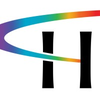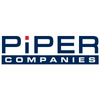Careers that Change Lives
In this role, you will join a world class team of mechanical, electrical and software engineers responsible for further development and enhancement of the globally launched Robotic Assisted Surgery platform within the Surgical Operating unit :
Medtronic’s Surgical Operating Unit is one new, powerful operating unit bringing together the people and product portfolio of Surgical Robotics and Surgical Innovations.
With the Medtronic Mission as our North Star, we will build on our legacy of proven surgical solutions and advance the promise of robotics and digital solutions for the benefit of the customers and patients we serve.
Make your impact by exploring a career with the world’s leading Medical Device company, striving to alleviate pain, restore health, and extend life.
A Day in The Life
Located at the Medtronic office in the Seaport District of Boston, MA, or North Haven, CT, as a Platform Software Engineer you will lead and / or participate in the software development efforts in the Software Center of Excellence of the Surgical Operations Organization.
You will work in a fast-paced environment with a group of software engineers, collaborating with cross functional teams to complete requirements definition, design, code implementation, unit test, and software and system verification and validation.
Engineers create our market-leading portfolio of innovations. Combine the best of your experience with training and mentorship to move your career forward.
If you want a challenging, energizing, rewarding career that changes lives, join us. Help us bring the next generation of life-changing medical technology to patients worldwide.
Must Have : Minimum Requirements
Bachelor’s degree and a minimum of 4 years of relevant experience, or advanced degree and minimum of 2 years of relevant experience.
Nice to Have
Bachelor’s degree or advanced degree ideally in Computer Engineering, Electrical Engineering, or Computer Science.
As an ideal candidate, you would have some of the following experience :
Understanding of Windows, Linux, QNX or other operating system operation, drivers, interfaces, and coding in these environments.
Including but not limited to applications, processes, threads, handles, synchronization, drivers, virtual memory, kernel objects, performance counters, key performance indicators, performance analysis, networking, root causing, troubleshooting, and debugging in a complex multi-processor mixed OS environment.
Experience in developing and commercializing software products in a fast-paced R&D environment, including understanding of the software development lifecycle (SDLC) and best practices in the medical device industry, experience in providing post product support.
- Experience in hands-on development and troubleshooting on targets using modern C++ 11 or greater.
- Experience in object-oriented design and design patterns.
- Experience in relevant scripting languages (e.g. PowerShell, Python, Bash)
- Understanding and appreciation of SDLC process and tools (e.g. JIRA, Bitbucket, Stash, Confluence, JAMA, Git, CMake.)
- Experience in software development in medical device industry or other regulated industry is preferred.
- Experience in the test-driven development methodology and unit test.
- Experience in Agile / Scrum / SAFe software development practices.
- Ability to distill software requirements from system requirements.
- Experience with Windows OS, QNX (x86 and / or Arm target), Linux and / or other Real Time Operating System, including related IDEs, SDKs, and DDKs.
- Experience with Transport layer communications protocols and related network experience (e.g. DDS TCP / IP, UDP, Sockets, Wireshark, etc.)
- Experience Troubleshooting, Debugging, and Root Cause Analysis techniques and tools (e.g. WinDbg, GnuDbg, others)
- Experience performing risk management analysis of software ideally using SW FMEA techniques
- Experience working with the global / multi-development sites environment is a plus.
- Cybersecurity experience is desirable, designing and maintaining secure OS and applications (e.g. SSL / TLS, DTLS, TPM, Trusted / Secure Boot, Root of Trust, Authentication, Encryption, Public / Private Key, Key / Certificate Management, authenticated and secure communications protocols)






